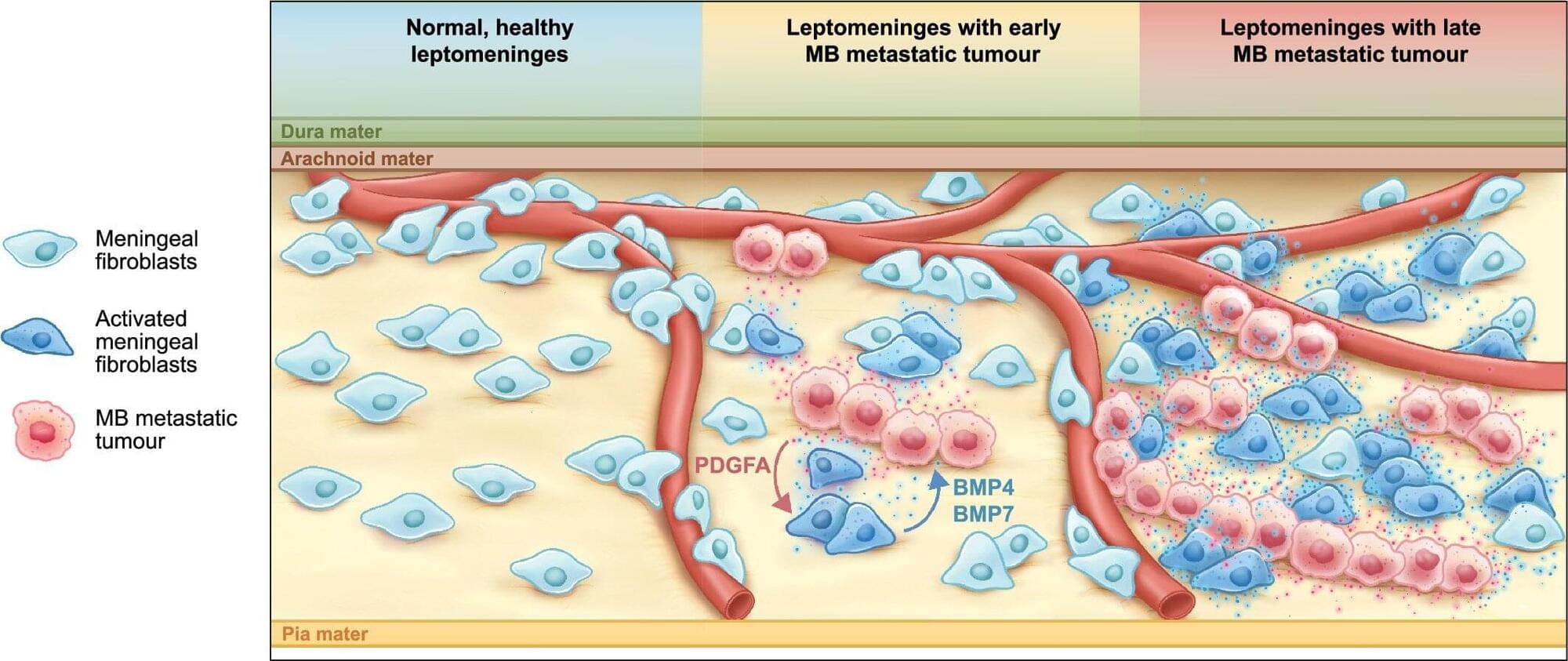Researchers at Baylor College of Medicine, Texas Children’s Hospital, the Hospital for Sick Children in Toronto and collaborating institutions reveal in Nature Cell Biology a strategy that helps medulloblastoma, the most prevalent malignant brain tumor in children, spread and grow on the leptomeninges, the membranes surrounding the brain and spinal cord.
They discovered a novel line of communication between metastatic medulloblastoma and leptomeningeal fibroblasts that mediates recruitment and reprogramming of the latter to support tumor growth. The findings suggest that disrupting this communication offers a potential opportunity to treat this devastating disease.
“Metastases, the spreading of a tumor away from its original site, are the most common and most important cause of illness and death for children with medulloblastoma,” said co-first author Dr. Namal Abeysundara, a postdoctoral fellow who was working in the lab of Dr. Michael D. Taylor at the Arthur and Sonia Labatt Brain Tumor Research Center and the Developmental and Stem Cell Biology Program at the Hospital for Sick Children in Toronto, Canada during this project.









